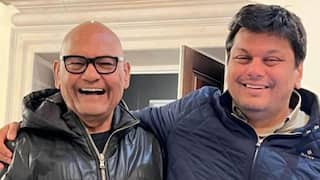Presidential Election 2022: Here Is How India Will Elect 15th President Of India
The Election Commission will announce the schedule for the presidential election as the term of India's 14th President Ram Nath Kovind will expire on July 24

New Delhi: After serving for almost five year, President Ram Nath Kovind's term will expire on July 24, and according to Article 62 of the Constitution, an election for the 15th President must be held before the incumbent's term ends. After the election to the highest constitutional office, President Ram Nath Kovind visited 29 countries till December 2021 enhancing India’s global outreach and footprint. As President of India, he has received the highest State honours from six countries, namely Madagascar, Equatorial Guinea, Eswatini, Croatia, Bolivia, and Republic of Guinea.
The election for the new Presiden of India will be held today on July 18 and the results will be announced by the Election Commission On July 21
Here Is How President Of India Is Elected
Nomination
Each candidate looking to run for the President of India's office are supposed to file their nominations. The candidates are also required to submit over Rs 15,000 as deposit and submit a signed list of 50 proposers and 50 seconders. The proposers and seconders can be any of the 4,896 electors eligible to vote in the Presidential election.
Election
Under Article 324 of the Constitution of India, the authority to conduct elections to the Office of President is vested in the Election Commission of India. The President of India is elected by the Members of an Electoral College consisting of the elected members of both Houses of Parliament and the elected members of the Legislative Assemblies of the States including the National Capital Territory of Delhi and Puducherry. These elected representatives vote for the President, in theory representing the people who would ideally vote for the President.
In terms of numbers, the electoral college is made up of 233 members of the Rajya Sabha, 543 members of the Lok Sabha and 4,120 members of legislative assemblies a total of 4,896 electors. It is to be noted that the nominated members of the state assemblies and the two Houses are not allowed to participate in the presidential election as they have been nominated by the President himself.
Besides, issuing whips to garner votes for a particular candidate is also prohibited.
Voting
The presidential elections follow the system of proportional representation by means of a single transferable vote. The value of each vote is pre-determined in proportion to the population of the respective state based on the 1971 census.
Each voter, as per this, marks out his preference for the presidential candidate. Suppose there are three candidates, the voter will give his preferences. It is mandatory to give a first preference as the vote in its absence will be declared invalid. The counting of votes is done in the office of the Returning officer at New Delhi.
The total votes secured by each contesting candidate are then ascertained by adding together the value of votes secured by him from the Members of Parliament and the Members of the State Legislative Assemblies. This is the first round of counting. If the total value of the votes credited to any candidate at the first count, is equal to, or greater than, the quota sufficient to secure the return of a candidate, that candidate is declared elected by the Returning Officer.
If the voter, however, does not give other preferences then the vote will be considered valid. The total value of the electoral college, comprising 4,896 electors is 10,98,903 and the winning candidate has to get at least 50 per cent plus one vote to be declared as elected.
Oath Taking
The President-elect takes the oath a day after the outgoing President demits office. The oath of the President is administered by the Chief Justice of India and in his absence the senior most Judge of the Supreme Court.
Under to Article 56, the President shall hold office for a term of five years from the date on which he enters his office.





































